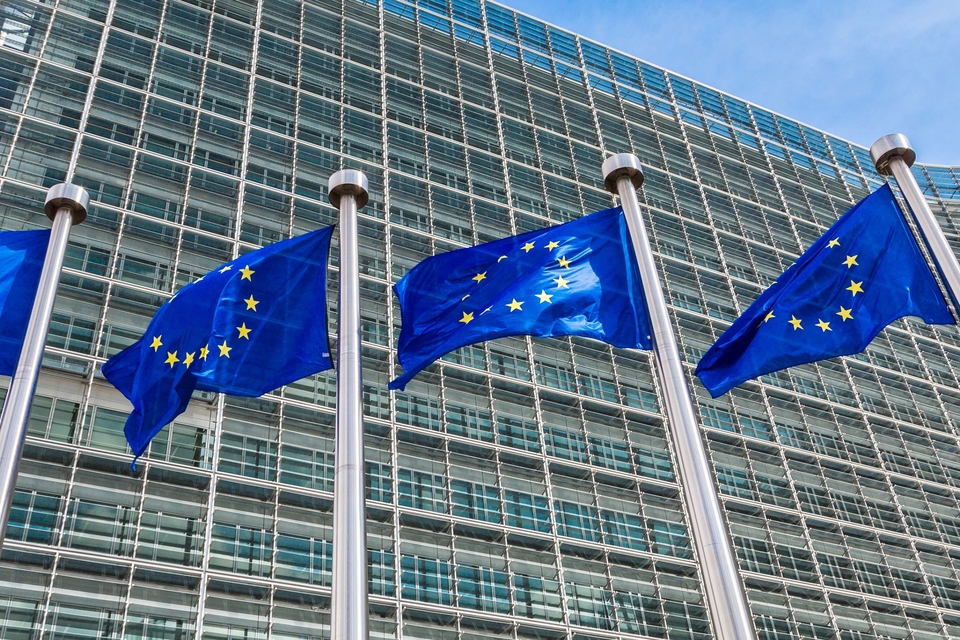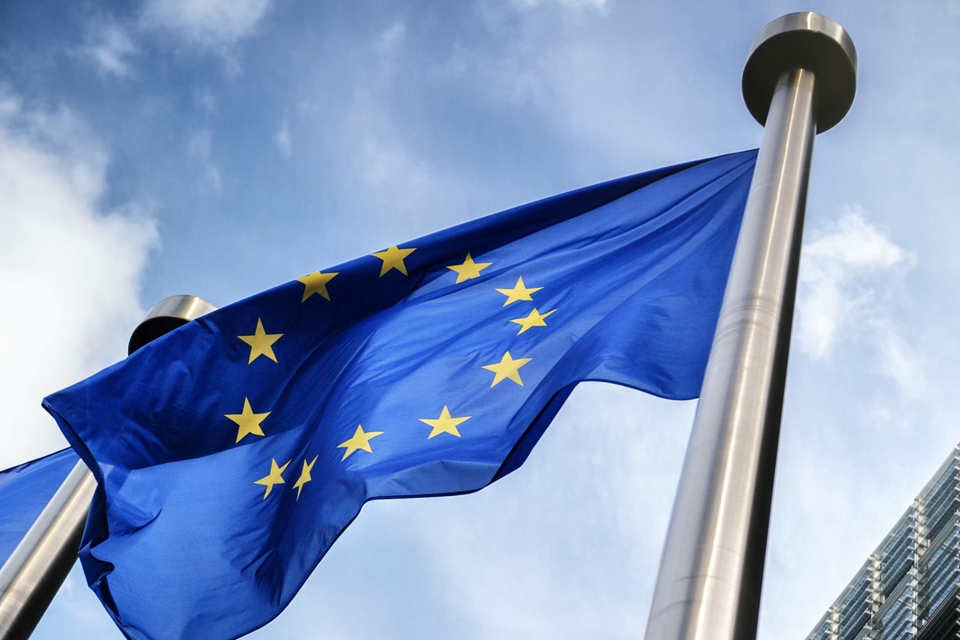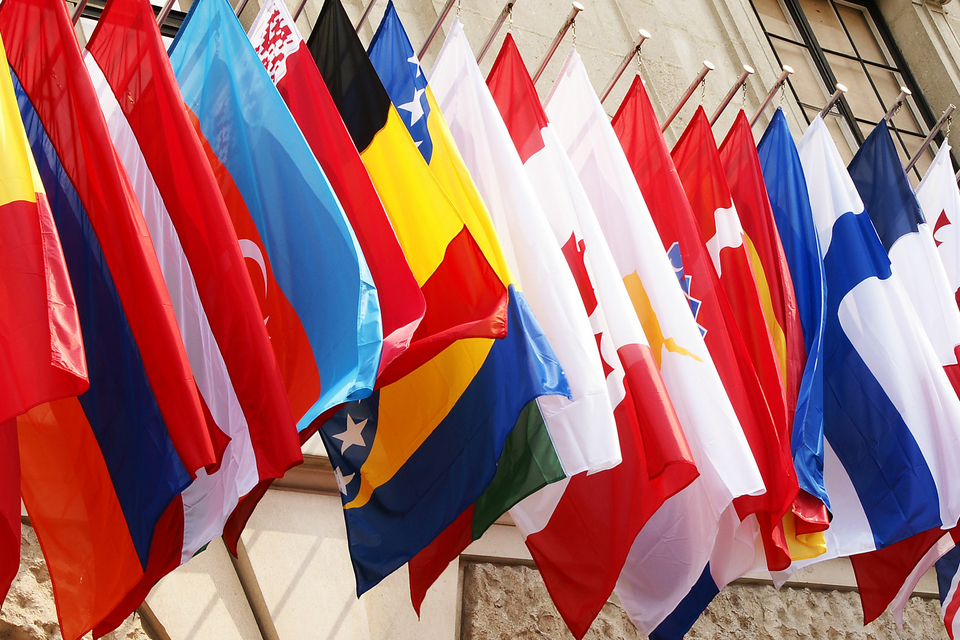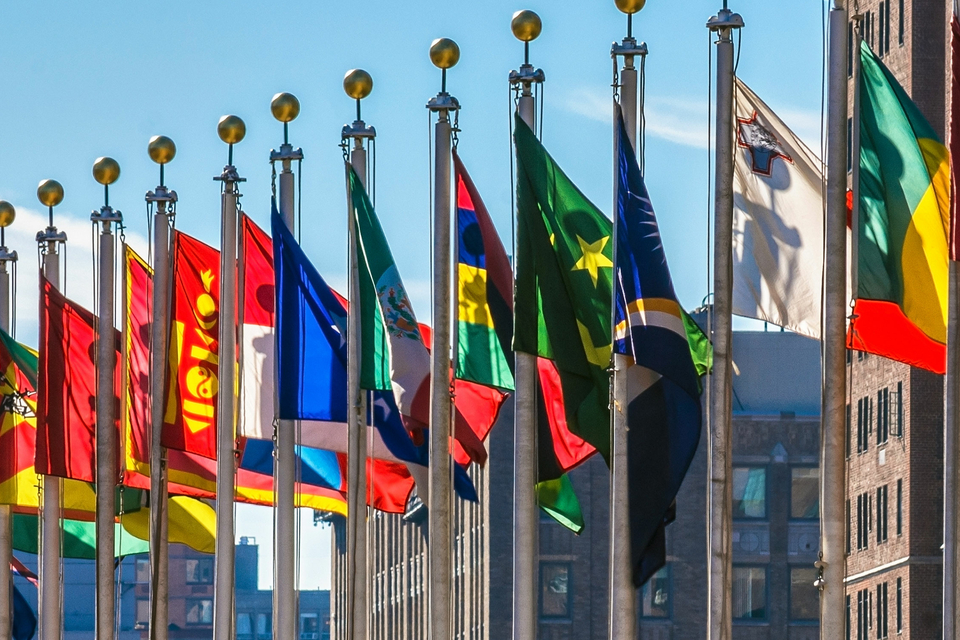African Union
The African Union's Continental AI Strategy sets the stage for a unified approach to AI governance across the continent.

Artificial intelligence (AI) has made enormous strides in recent years and has increasingly moved into the public consciousness.
Subscribe
We encourage you to subscribe to receive AI-related updates.
Explore Trendscape Our take on the interconnected global trends that are shaping the business climate for our clients.
Increases in computational power, coupled with advances in machine learning, have fueled the rapid rise of AI. This has brought enormous opportunities, as new AI applications have given rise to new ways of doing business. It has also brought potential risks, from unintended impacts on individuals (e.g., AI errors harming an individual's credit score or public reputation) to the risk of misuse of AI by malicious third parties (e.g., by manipulating AI systems to produce inaccurate or misleading output, or by using AI to create deepfakes).
Governments and regulatory bodies around the world have had to act quickly to try to ensure that their regulatory frameworks do not become obsolete. In addition, international organizations such as the G7, the UN, the Council of Europe and the OECD have responded to this technological shift by issuing their own AI frameworks. But they are all scrambling to stay abreast of technological developments, and already there are signs that emerging efforts to regulate AI will struggle to keep pace. In an effort to introduce some degree of international consensus, the UK government organized the first global AI Safety Summit in November 2023, with the aim of encouraging the safe and responsible development of AI around the world. The EU is also implementing the first comprehensive horizontal legal framework for the regulation of AI systems across EU Member States (the EU AI Act is addressed in more detail here: AI watch: Global regulatory tracker - European Union, and you can read our EU AI Act Handbook here).
Most jurisdictions have sought to strike a balance between encouraging AI innovation and investment, while at the same time attempting to create rules to protect against possible harms. However, jurisdictions around the world have taken substantially different approaches to achieving these goals, which has in turn increased the risk that businesses face from a fragmented and inconsistent AI regulatory environment. Nevertheless, certain trends are becoming clearer at this stage:
Businesses in almost all sectors need to keep a close eye on these developments to ensure that they are aware of the AI regulations and forthcoming trends, in order to identify new opportunities and new potential business risks. But even at this early stage, the inconsistent approaches each jurisdiction has taken to the core questions of how to regulate AI is clear. As a result, it appears that international businesses may face substantially different AI regulatory compliance challenges in different parts of the world. To that end, this AI Tracker is designed to provide businesses with an understanding of the state of play of AI regulations in the core markets in which they operate. It provides analysis of the approach that each jurisdiction has taken to AI regulation and provides helpful commentary on the likely direction of travel.
Because global AI regulations remain in a constant state of flux, this AI Tracker will develop over time, adding updates and new jurisdictions when appropriate. Stay tuned, as we continue to provide insights to help businesses navigate these ever-evolving issues.
The African Union's Continental AI Strategy sets the stage for a unified approach to AI governance across the continent.

Voluntary AI Ethics Principles guide responsible AI development in Australia, with potential reforms under consideration.

The enactment of Brazil's proposed AI Regulation remains uncertain with compliance requirements pending review.

AIDA expected to regulate AI at the federal level in Canada but provincial legislatures have yet to be introduced.

The Interim AI Measures is China's first specific, administrative regulation on the management of generative AI services.

Despite congressional activity on AI in Colombia, regulation remains unclear and uncertain.

The Council of Europe is developing a new Convention on AI to safeguard human rights, democracy, and the rule of law in the digital space covering governance, accountability and risk assessment.

The successful implementation of the EU AI Act into national law is the primary focus for the Czech Republic, with its National AI Strategy being the main policy document.

The EU introduces the pioneering EU AI Act, aiming to become a global hub for human-centric, trustworthy AI.

France actively participates in international efforts and proposes sector-specific laws.

The G7's AI regulations mandate Member States' compliance with international human rights law and relevant international frameworks.

Germany evaluates AI-specific legislation needs and actively engages in international initiatives.

Hong Kong lacks comprehensive AI legislative framework but is developing sector-specific guidelines and regulations, and investing in AI.

National frameworks inform India’s approach to AI regulation, with sector-specific initiatives in finance and health sectors.

Israel promotes responsible AI innovation through policy and sector-specific guidelines to address core issues and ethical principles.


Japan adopts a soft law approach to AI governance but lawmakers advance proposal for a hard law approach for certain harms.

Kenya's National AI Strategy and Code of Practice expected to set foundation of AI regulation once finalized.

Nigeria's draft National AI Policy underway and will pave the way for a comprehensive national AI strategy.

Position paper informs Norwegian approach to AI, with sector-specific legislative amendments to regulate developments in AI.

The OECD's AI recommendations encourage Member States to uphold principles of trustworthy AI.

Saudi Arabia is yet to enact AI Regulations, relying on guidelines to establish practice standards and general principles.

Singapore's AI frameworks guide AI ethical and governance principles, with existing sector-specific regulations addressing AI risks.

South Africa is yet to announce any AI regulation proposals but is in the process of obtaining inputs for a draft National AI plan.

South Korea's AI Act has been promulgated as the fundamental body of law governing AI.

Spain creates Europe's first AI supervisory agency and actively participates in EU AI Act negotiations.

Switzerland's National AI Strategy sets out guidelines for the use of AI, and aims to finalize an AI regulatory proposal in 2025.

Draft laws and guidelines are under consideration in Taiwan, with sector-specific initiatives already in place.

Turkey has published multiple guidelines on the use of AI in various sectors, with a bill for AI regulation now in the legislative process.

Mainland UAE has published an array of decrees and guidelines regarding regulation of AI, while the ADGM and DIFC free zones each rely on amendments to existing data protection laws to regulate AI.

The UK prioritizes a flexible framework over comprehensive regulation and emphasizes sector-specific laws.

The UN's AI resolutions encourage Member States to adopt national rules to establish safe, secure and trustworthy AI systems and create forums to advance global cooperation, scientific understanding, and share best practices.

The US relies on existing federal laws and guidelines to regulate AI but aims to introduce AI legislation and a federal regulation authority.


Switzerland's National AI Strategy sets out guidelines for the use of AI, and aims to finalize an AI regulatory proposal in 2025.
There are no specific laws, statutory rules, or regulations in Switzerland that directly regulate AI.1 At present, AI in Switzerland is subject to the Swiss legal framework. On February 12, 2025, the Federal Council decided to ratify and implement the Council of Europe's Framework Convention on Artificial Intelligence and Human Rights, Democracy and the Rule of Law ("AI Convention" – see dedicated chapter here). This decision formalized the direction of travel as regards Switzerland's regulatory approach for AI.2
On March 27, 2025, the AI Convention was signed by Switzerland.3 Its ratification is subject to parliamentary approval. It may be subject to a referendum, if requested by 50,000 voters, which would delay the implementation of the AI Convention or could also even prevent its ratification.4 Until the AI Convention is implemented, AI in Switzerland remains subject to the present legal framework, which includes the Constitution, the laws governing data protection, as well the rules of civil and criminal liability.5
As mentioned above, there are currently no specific laws or regulations in Switzerland that directly regulate AI. In November 2023, the Federal Department of the Environment, Transport, Energy and Communications (DETEC) and the Federal Department of Foreign Affairs (FDFA) were commissioned by the Federal Council to evaluate potential approaches to the regulation of AI. On February 12, 2025, a report entitled "Overview of artificial intelligence regulation" (the "Report") was presented to the Federal Council. Based on this Report, the Federal Council decided in early 2025 on a Swiss regulatory approach for AI, with three objectives: (i) strengthening Switzerland as a location for innovation; (ii) safeguarding the protection of fundamental rights, including economic freedom; and (iii) increasing public trust in AI.6
On March 27, 2025, Switzerland signed (but has not yet ratified) the AI Convention.7 Thus, at this stage, the AI Convention is not part of Swiss law.
As next steps, the Swiss Federal Department of Justice and Police (FDJP), together with the DETEC and the FDFA, have been tasked by the Federal Council with drafting a bill that will implement the amendments to Swiss law required by the AI Convention. This draft bill is expected to be submitted for consultation by the end of 2026. The bill is expected to set out the required legislative amendments in key areas such as transparency, data protection, non-discrimination, and oversight to protect fundamental rights.
In addition, the DETEC, the FDJP, and the Federal Department of Economic Affairs, Education and Research (EAER) have been tasked with drawing up non-legally binding measures by the end of 2026.8 At the time of writing, Switzerland has not issued any guidance on the nature of such measures.
Even if AI is not directly regulated in Switzerland, various laws impact the development and use of AI in Switzerland. A non-exhaustive list includes:
In addition, authorities have released various pieces of guidance. For example:
The Swiss Bankers Association, which publishes guidelines and standards for the banking and financial industry in Switzerland, has indicated that it welcomes the Federal Council's AI strategy commitment to maintaining a technology-neutral, sector-specific regulatory approach.13
The Federal Council's "Digital Switzerland Strategy 2025",14 sets the guidelines for the Federal Administration's digital transformation and is binding for the Federal Administration.15 It may serve as an orientation for cantons, communes, business, science and civil society.
As it currently stands, Swiss law does not provide any definition of AI.
The Report uses the definition of "AI system" provided in Article 2 of the Council of Europe's AI Convention:16
"A machine-based system that, for explicit or implicit objectives, infers, from the input it receives, how to generate outputs such as predictions, content, recommendations or decisions that may influence physical or virtual environments. Different artificial intelligence systems vary in their levels of autonomy and adaptiveness after deployment."17
This definition is also used in Switzerland's Competence Network for Artificial Intelligence (CNAI), which was set up by the Swiss Federal Council in 2022 to implement concrete AI projects within the Federal Administration.18
There are currently no specific laws or regulations in Switzerland that directly regulate AI. Thus, there is no specific territorial scope at this stage.
To date, Switzerland's incorporation of the AI Convention and eventual modifications of laws is yet to be determined. As a general comment, it should be noted that existing laws, such as the Data Protection Act, may apply extraterritorially under conflict-of-laws rules.
There are currently no specific laws or regulations in Switzerland that directly regulate AI. Thus, there is no specific sectoral scope at this stage. However:
The use of AI in medical devices is likely to fall under certain provisions of the Therapeutic Products Act, the Medical Devices Ordinance and related ordinances.23
There are currently no specific laws or regulations in Switzerland that directly regulate AI. Accordingly, there are no specific or unique obligations imposed on developers, users, operators and/or deployers of AI systems.
There are, however, general requirements for governance in companies, in particular stock and listed companies, which continue to apply in relation to AI, and are likely to increase.
There are currently no specific laws or regulations in Switzerland that directly regulate AI.
As mentioned in the Report, AI systems must be trustworthy, reliable and robust, and appropriate transparency, traceability and explainability of processes and decisions that use AI must be guaranteed.24
As noted above, there are currently no specific laws or regulations in Switzerland that directly regulate AI. As such, there is currently no risk categorization for AI systems.
There are currently no specific laws or regulations in Switzerland that directly regulate AI. However, the existing legal framework must be observed.
As mentioned above, the Federal Council has instructed the FDJP together with the DETEC and FDFA to draft by the end of 2026 a bill outlining the amendments to existing laws required for the implementation of the AI Convention.25
Certain authorities have supervisory and/or regulatory powers under existing laws that do not directly regulate AI but apply to the use of AI in regulated sectors. For example:
There are currently no specific laws or regulations in Switzerland that directly regulate AI. As noted above, Switzerland's concrete implementation of the AI Convention is still to be determined. Thus, it is currently unclear what enforcement powers the relevant authority will have or what penalties it may impose upon breaches.
Currently, AI is governed by "traditional" laws. The regulators may have enforcement powers in relation to breaches of these laws. For example:
Sebastien Bedat (White & Case, Legal Intern, Geneva) contributed to the development of this publication.
1 See the Federal Office of Communications' "Overview and Switzerland's regulatory approach" here.
2 See "AI regulation: Federal Council to ratify Council of Europe Convention" here.
3 See "Switzerland Signs the Council of Europe's Global Treaty on AI" here;
4 See article 141 para. 1 lit. no. 3 of the Federal Constitution here.
5 See DETEC's "Overview of artificial intelligence regulation Report to the Federal Council" here.
6 See "Overview and Switzerland's regulatory approach" here.
7 See "Switzerland Signs the Council of Europe's Global Treaty on AI" here.
8 See "AI regulation: Federal Council to ratify Council of Europe Convention" here.
9 See Article 21, Federal Act on Data Protection here.
10 See the Federal Council's "Guidelines on Artificial Intelligence for the Confederation General frame of reference on the use of artificial intelligence within the Federal Administration" here.
11 See the FDPIC's "Current data protection is directly applicable to AI" here.
12 See FINMA's 08/2024 Guidance Note "Governance and risk management when using artificial intelligence" here.
13 See the Swiss Bankers Association's Press Release "Federal Council decides on regulatory approach to AI in Switzerland" here.
14 See "Digital Switzerland Strategy 2025" here.
15 See article 1 (a) and (c), Ordinance on digital services and digital transformation in the Federal Administration (French) here.
16 See DETEC's "Overview of artificial intelligence regulation Report to the Federal Council", page 6, here.
17 See the Framework Convention on Artificial Intelligence and Human Rights, Democracy and the Rule of Law, here.
18 See DETEC's "Overview of artificial intelligence regulation Report to the Federal Council", here.
19 See the Federal Council's "Guidelines on Artificial Intelligence for the Confederation General frame of reference on the use of artificial intelligence within the Federal Administration" here.
20 See FINMA's 08/2024 Guidance Note "Governance and risk management when using artificial intelligence", page 3, here.
21 See the Federal Road Traffic Act (in French) here.
22 See the Federal Office of Civil Aviation's "Questions and Answers on the drone regulation", here.
23 See article 62a of the Therapeutics Products Act, accessible here; Article 79 of the Medical Devices Ordinance, accessible here.
24 See DETEC's "Overview of artificial intelligence regulation Report to the Federal Council", page 19, here.
25 See "AI regulation: Federal Council to ratify Council of Europe Convention" here; Press release of the Federal Council, "Switzerland signs Council of Europe Convention on Artificial Intelligence" dated 26 March 2025, accessible here.
26 See the Competence Network for Artificial Intelligence here.
27 See the Federal Act on Data Protection, article 4, here.
28 See "Current data protection legislation is directly applicable" here.
29 FINMA Guidance 08/2024 Guidance Note "Governance and risk management when using artificial intelligence", dated 18 December 2024, accessible here, page 4, third and fourth paragraphs, page 7, last paragraph.
30 See the Swiss Federal Institute of Intellectual Property's "Robotics and artificial intelligence (AI)" here.
31 See the Federal Roads Office (FEDRO) "Intelligent mobility" here.
32 See the Zurich Office for Economy's, "Innovation Sandbox for Artificial Intelligence (AI)" here.
White & Case means the international legal practice comprising White & Case LLP, a New York State registered limited liability partnership, White & Case LLP, a limited liability partnership incorporated under English law and all other affiliated partnerships, companies and entities.
This article is prepared for the general information of interested persons. It is not, and does not attempt to be, comprehensive in nature. Due to the general nature of its content, it should not be regarded as legal advice.
© 2025 White & Case LLP